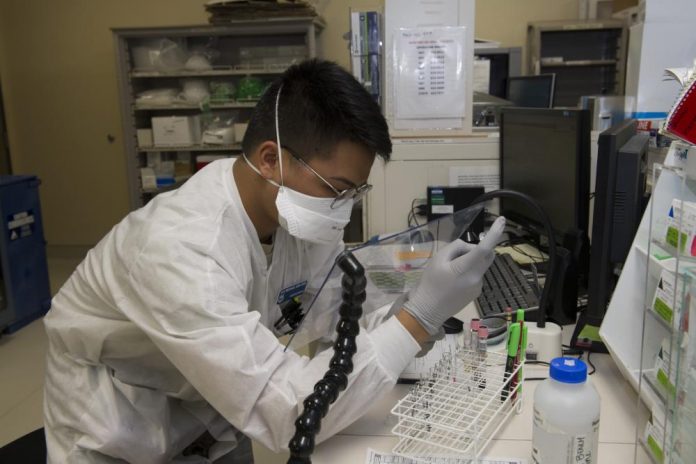Researchers in Hong Kong announced Monday that they have discovered the world’s first proven case of Covid-19 re-infection, but experts say it is too early to draw any conclusions about the outcome of the pandemic.
“This case shows that re-infection can occur only a few months after being cured of a first infection,” the microbiology department of the University of Hong Kong (HKU) said in a statement, saying that four and a half months separate the two infections.
According to the researchers, genetic analysis showed that these two successive infections of the same patient had been caused by two different strains of the SARS-CoV-2 virus, responsible for Covid-19.
“Our results suggest that SARS-CoV-2 could persist in the population, as is the case with other coronaviruses responsible for common colds, even if patients have acquired immunity,” the HKU researchers continued.
“Since immunity may not last long after infection, vaccination should be considered even for people who have already been infected,” they say.
The patient, a 33-year-old Hong Kong man, tested positive for the first time on March 26, after presenting with symptoms such as cough, headache, sore throat, and fever. Once he recovered, he tested negative twice.
But on August 15, he tested positive again. Importantly, this time he showed no symptoms: his illness was only discovered through a screening test at Hong Kong airport, while he was returning from Spain via the UK.
“It is unlikely that herd immunity can eliminate CoV-2-SARS, although it is possible that subsequent infections may be less severe than the first, as was the case with this patient,” the researchers wrote in their study.
The study was accepted Monday by the American medical journal Clinical Infectious Diseases and is awaiting publication.
In recent months, several cases of possible reinfection had been mentioned around the world, without certainty. The question of immunity to Covid-19 is surrounded by many unknowns.
However, specialists warn against hasty conclusions.
“It is difficult to draw definitive conclusions from a single case. Given the number of infections worldwide, seeing a case of re-infection is not so surprising,” commented Dr. Jeffrey Barrett of the Wellcome Sanger Institute.
Source: Orange

